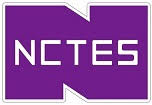
Grey water system Treatment
Grey water or sullage is all wastewater generated in households or office buildings from streams without fecal contamination, i.e. all streams except for the wastewater from toilets. Sources of greywater include, sinks, showers, baths, clothes washing machines or dish washers. As greywater contains pathogens than domestic wastewater, it is generally safer to handle and easier to treat and reuse onsite for toilet flushing, landscape or crop irrigation, and other non-potable uses.
The application of greywater reuse in urban water systems provides substantial benefits for both the water supply subsystem by reducing the demand for fresh clean water as well as the wastewater subsystems by reducing the amount of wastewater required to be conveyed and treated. Treated greywater has many uses, for example toilet flushing or irrigation.
Benefits:
- Reducing the need for fresh water.
- Reducing the amount of wastewater entering sewers or on-site treatment systems.
- Reclamation of nutrients.
- Groundwater recharge.
- Reducing the need for fresh water.
- Reducing the amount of wastewater entering sewers or on-site treatment systems.
- Reclamation of nutrients.
- Groundwater recharge.
